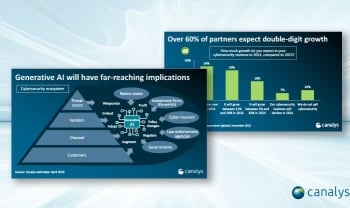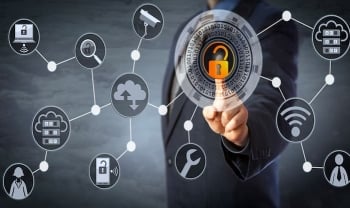Are You in Control of Your Personal Information?

Protecting your personal data while participating in an increasingly online community can be challenging. When the wrong people get a hold of personal information, it can lead to identity theft and other costly crimes which can haunt individuals for years. However, consistently applying a few commonsense privacy practices will help you to avoid unnecessary time, expense, and trouble. We encourage you to recognize Data Privacy Day on January 28th with a renewed commitment to personal information security.
Take the Personal Data Protection Pledge here!

I promise to:
1. Treat unexpected messages as suspicious.
I will get them – emails, texts, and phone calls – that seem to come from legitimate people and companies with whom I have a relationship. Amazon, PayPal, and even my co-workers send messages that, on occasion, just don’t seem right. I will avoid engaging with those messages and will not release any personal information to those sources until verified through my own efforts.
2. Resist the temptation to click links or download files
I’m used to clicking on links from friends, family members, coworkers and companies I trust, but links and files from untrusted or suspicious sources need to be handled differently. I investigate links by hovering to discover the actual web address and will not click a link or download a file with a suspicious origin.
3. Get a password manager
There’s no way I’m going to remember passwords for every account I use, and if I could, then the passwords would be too simple and easily hackable. Not only does a password manager keep criminals away from the personal information in my accounts, but it makes it easier for me to access my accounts without hassle.
4. Use multi-factor authentication whenever possible
I know that there are data breaches that could have leaked my personal information and possibly even passwords. To ensure that criminals can’t access the personal information in my accounts even when they have the correct log-in information, I will set up 2-factor or multi-factor authentication that provides a time-based verification response using my phone or email in addition to my account credentials.
5. Read privacy policies before creating an account
Due in part to data privacy regulations enacted around the world, companies are usually required to disclose how they will handle your personal data. By reading their published privacy policies, I can learn if they sell data to 3rd parties and how they use information collected using website cookies. Before setting up and saving account information with a business, I will confirm that they will not disclose or use my personal information in unsafe ways.
6. Keep the antivirus and security software on my devices up to date
I realize that malware can be installed on my computer without my knowledge that allows cybercriminals to possibly steal data on my system and even capture keystrokes as I enter data into other systems. It takes strong endpoint security to reduce these risks, and this software needs to be updated in order to block the latest threats. I will pay attention to alerts suggesting that my security is or about to become inactive, expired and/or out of date and take prompt action to remedy the situation.
7. Assume that public Wi-Fi connections are exposed
While I need to connect to public Wi-Fi hot spots from time to time, I understand that there is no guarantee that security measures have been put in place by the host, and so I will not input personal information without first running a VPN or other tool for encrypted communications.
8. Interact safely on social media
Social media like Facebook, Instagram, SnapChat, YouTube, and Twitter offer unique opportunities to connect with my friends and family as well as meet and engage with like-minded individuals. However, I cannot be assured that I am communicating with who I think I am, and that they have honorable intent. Therefore, I need to take extra care to not divulge personal information to unknown audiences by:
- Activating the privacy settings offered to hide profile information and posts from all except but people that I have approved for my community
- Only approving people I know to join my community
- Not entering personal information in quizzes, applications for studies, or forms opened from advertisements
Thank you for owning your personal data and committing to the actions that will protect it. As our digital environments are continually evolving, so are our security practices. To remain informed, many governments around the world provide security and privacy information from their websites.


